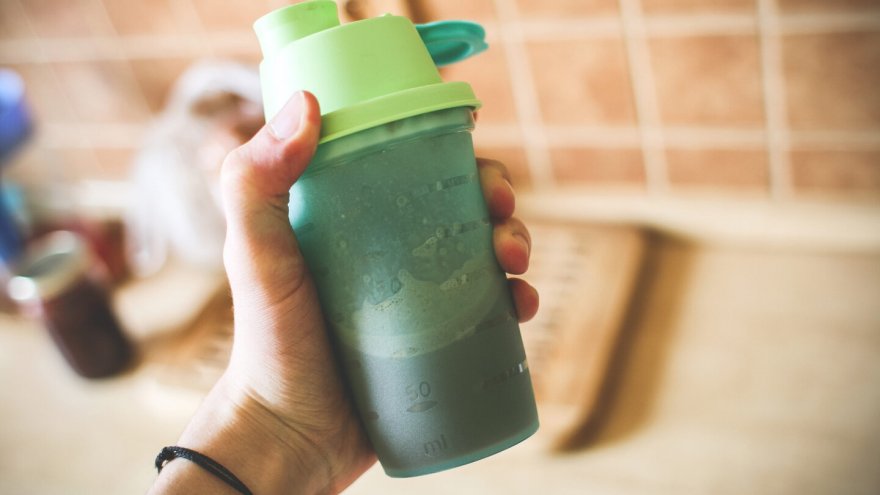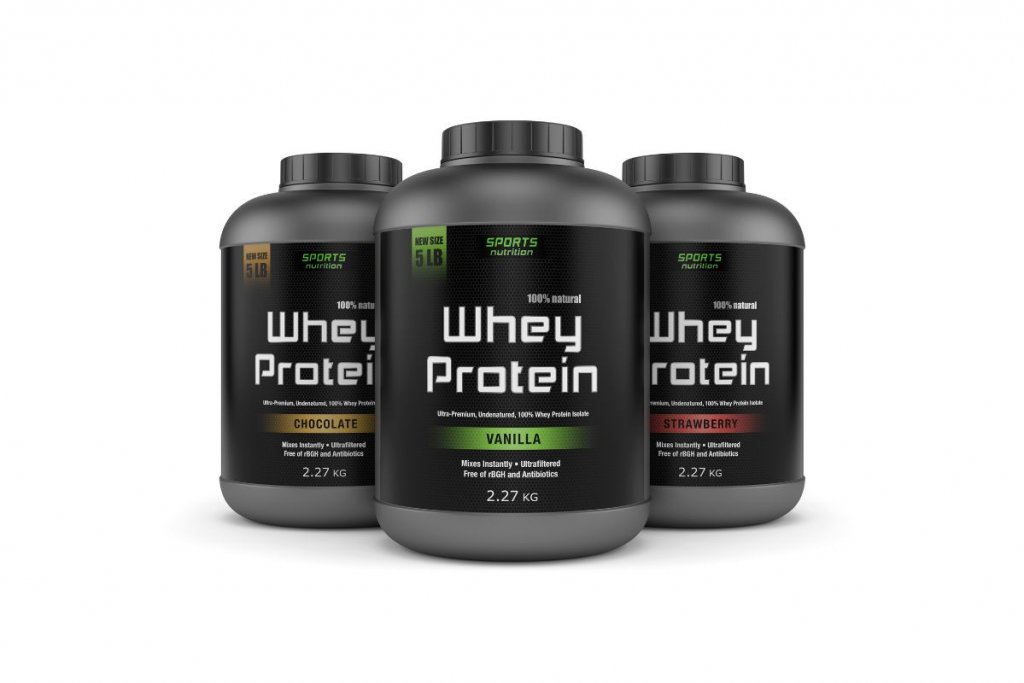Pea Protein Vs. Whey Protein: The Better Option for Runners

If there are no dietary restrictions, allergies, or preferences, whey protein isolate is the top pick for runners. The bottom line is you simply get a bit more bang for your buck regarding taste, BCAAS, and all-around variability with whey proteins.
Protein allows the human body to experience muscle gain and growth and provides the building blocks to rebuild. While protein intake from real food sources is a great tool, sometimes sitting down to a full meal post-workout is unrealistic.
This is where protein powders or supplements come into play.
What is the Difference Between Pea and Whey Protein?
There are many differences between pea and whey protein. For starters, pea protein uses a plant-based source of protein. Whey is an animal-based protein.
Both can have a very high protein content and include the macronutrients necessary for building and repairing muscles.
So how do you know which one to choose?
Which is Better, Whey or Pea Protein?
To determine which one is better for you, we investigated each type of protein powder. Whether you want to make a protein shake, put some protein into your morning smoothie, or bake with protein powder, there is a protein perfect for you.
1. Amino Acid Profiles of Whey and Pea Protein
Most scientists agree that in terms of essential amino acid content, the best protein source is whey. Although pea protein contains many essential amino acids, it is in minimal amounts in some of them.
Whey contains:
- leucine
- lysine
- tyrosine
- cysteine
- isoleucine
- valine
- threonine
- tryptophan
- histidine
Pea protein contains:
- histidine
- isoleucine
- leucine
- lysine
- methionine
- phenylalanine
- threonine
- tryptophan
- valine
2. Absorption
Whey protein is more readily absorbed in the body than most plant-based proteins.
On the other hand, pea protein isolate is excellent for vegans who are lactose intolerant.
3. Make Up
Pea protein is made from yellow split peas that have been dried and ground into meal. Like most plant-based protein powders, many prefer this type over those made from whey due to dietary restrictions or taste preferences.
Whey protein is made from whey, a byproduct that results from cheese production. As a protein isolated from cow’s milk, it is an animal protein. Some individuals with lactose intolerances and milk sensitivities can use whey isolate as there is minimal lactose in the final product.
Whey contains about 90% protein by weight, whereas pea protein has closer to 85%, making whey more bang for your buck.
4. Taste
Pea protein has an earthy taste, whereas whey protein tastes more similar to powdered milk. Both proteins can be flavored to mask or complement the flavor of the protein itself.
Determining which one tastes better is really difficult as it is a personal preference. I prefer the milk taste of whey protein supplements and find most pea proteins to be a tad bit bitter, so that is my choice for my protein shakes.
Why and When to Choose Pea Protein?
- Are you avoiding animal products? Peas are legumes that are high in iron. That is one reason people prefer pea over other types of protein.
- Pea proteins are practically allergen-free, which is an advantage for some people.
- Lactose-intolerant people often gravitate to pea protein powders.
- Following a plant-based diet? Then pea proteins might be best for you.

Why and When Should You Choose Whey Protein?
- Whey protein powder is an animal-based complete protein, and can be used by anyone with no dietary restrictions or allergies.
- Containing a higher amount of leucine, which is a branched-chain amino acid (BCAA), whey protein is better for muscle growth and repair than other proteins.
- Whey protein is commonly used by athletes and individuals engaged in resistance training or physical activities that place higher demands on muscle tissue.

Protein Health Benefits
- Build Muscle Mass: It’s not just bodybuilders who desire increased muscle mass. Remember that lean muscle growth is good for all athletes.
- Facilitate Recovery: Protein is crucial to muscle recovery after a strenuous workout.
- Maintaining Muscle Growth: A high-quality protein source helps to maintain and grow muscles.
- Metabolism Boost: Lean protein sources can give you a boost to your metabolism.
- Weight Loss: Taking in protein can help the athlete feel full longer, aiding in weight loss. Just be careful you are not adding a bunch of sugar protein beverages and supplements to a diet that is already high in calories.
Latest Articles
 Is Running on a Treadmill Easier Than Running Outside?Runners have their own preferences, whether it is treadmill running, running outside on the road, or exploring trails. So...
Is Running on a Treadmill Easier Than Running Outside?Runners have their own preferences, whether it is treadmill running, running outside on the road, or exploring trails. So... Is It OK to Use Trail Running Shoes on the Road?While trail running shoes can be used on roads, especially in situations where a runner encounters mixed terrains or pref...
Is It OK to Use Trail Running Shoes on the Road?While trail running shoes can be used on roads, especially in situations where a runner encounters mixed terrains or pref... How to Fix Sore Quads After Running?Rest, ice, gentle stretching, and over-the-counter pain relievers can help soothe sore quads after running. Also, ensure ...
How to Fix Sore Quads After Running?Rest, ice, gentle stretching, and over-the-counter pain relievers can help soothe sore quads after running. Also, ensure ... 10 Fruits With The Most Electrolytes to Replace Sports DrinksThese fruits are high in electrolytes such as potassium, magnesium, and calcium, essential for hydration, muscle function...
10 Fruits With The Most Electrolytes to Replace Sports DrinksThese fruits are high in electrolytes such as potassium, magnesium, and calcium, essential for hydration, muscle function...

